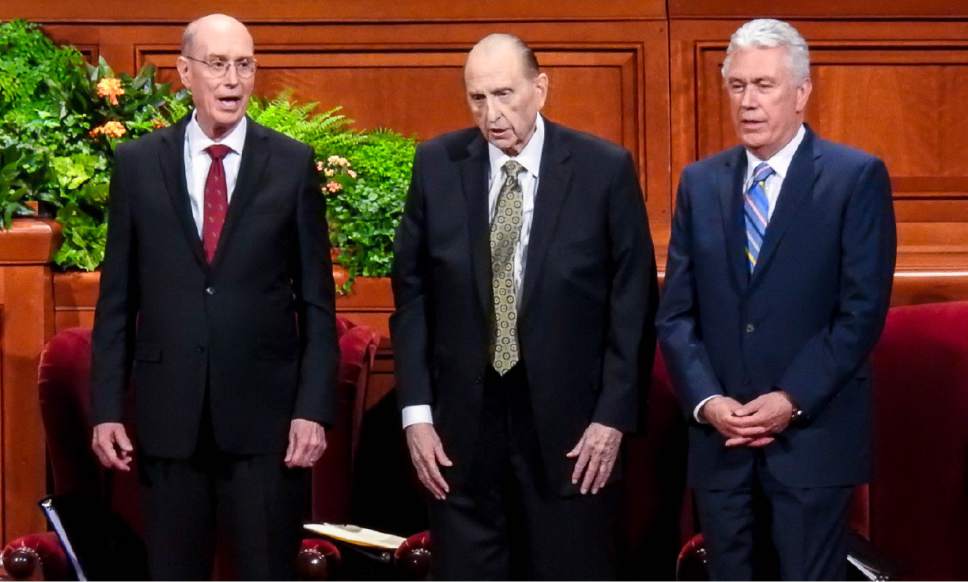This is an archived article that was published on sltrib.com in 2016, and information in the article may be outdated. It is provided only for personal research purposes and may not be reprinted.
Last week in church, the bishop of our LDS ward read a letter from the first presidency, encouraging us to take part in the election of the next U.S. president (and assorted other ferrets).
Most importantly, we were exhorted to participate in the democratic process without rancor or divisiveness. If it came up, disagreeing respectfully was the way to go.
Not mentioned, but clearly intended to be understood, was that there should be no punching, biting, kicking, spitting or calling each other vile names when it came to politics.
I admit astonishment. Doesn't the First Presidency understand how the political process works? It's impossible to hold an election without serious acrimony, even among God's children.
In fact, I believe this to be completely contradictory to Nephi 3:7, which says: "... for I know that the Lord giveth no commandments unto the children of men, save he shall prepare a way for them that they may accomplish the thing which he commandeth them."
If God wanted us to have respectful elections, he wouldn't have created us as the sort of creatures who occasionally needed a flood or a plague to get our minds straight, especially since it never seems to last.
There's no such thing as a respectful election any more than there is a reverent riot. It's oxymoronic. One guarantees the complete absence of the other.
Also specifically mentioned in the letter was that worthy members of the LDS Church may belong to many different political parties, including those parties once regarded by the church as "satanic" in nature.
So it's clear from this letter that elections are important even when the choices are unconscionable.
From the letter, I understood that we have a religious mandate to participate in determining the future of our country, even though we believe that it will end horribly, à la Second Coming. It should be an orderly, well-mannered and democratic horrible end.
Another thing that occurred to me is why we don't elect LDS general authorities? This may be an inappropriate question, but it's a fair one nonetheless.
Why couldn't Elder E. Barnum Flyspot campaign for the president of the church against President Dorfman E. Spacker? It's happened before.
After Joseph Smith was killed at Carthage in 1844, there was an election of sorts regarding who would succeed him as the leader. Brigham Young squared off against Sidney Rigdon in Nauvoo.
Young, with whom most of us today are at least passingly familiar, beat Rigdon in the primary and became president for life. Rigdon was promptly excommunicated and died a few years later, never having forgiven the electorate.
Things would be so much different today if we elected our prophets and apostles. For starters, there'd be no falling asleep in General Conference. Not with one candidate yelling at another for not releasing his tithing records.
Another candidate might trot out aged high school girlfriends of his opponent to see whether he had kissed them inappropriately 112 years ago. Who knows how bad this could get?
It could even get personal. When I was a cop, I stopped a general authority (no, I'm not telling you which one) for an improper lane change. Would I have later become a pawn in an effort to unseat him from the Quorum? No thanks.
I say we keep doing it the way we are. De facto succession may not always give everyone what they want as far as doctrine, but at least it cuts down on time wasted campaigning.
Robert Kirby can be reached at rkirby@sltrib.com or facebook.com/stillnotpatbagley.



